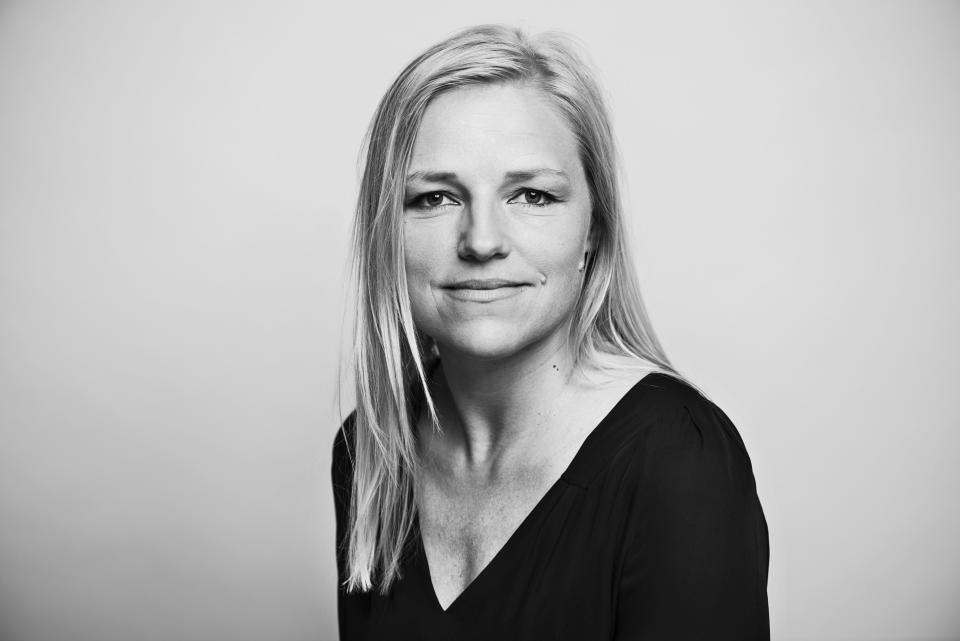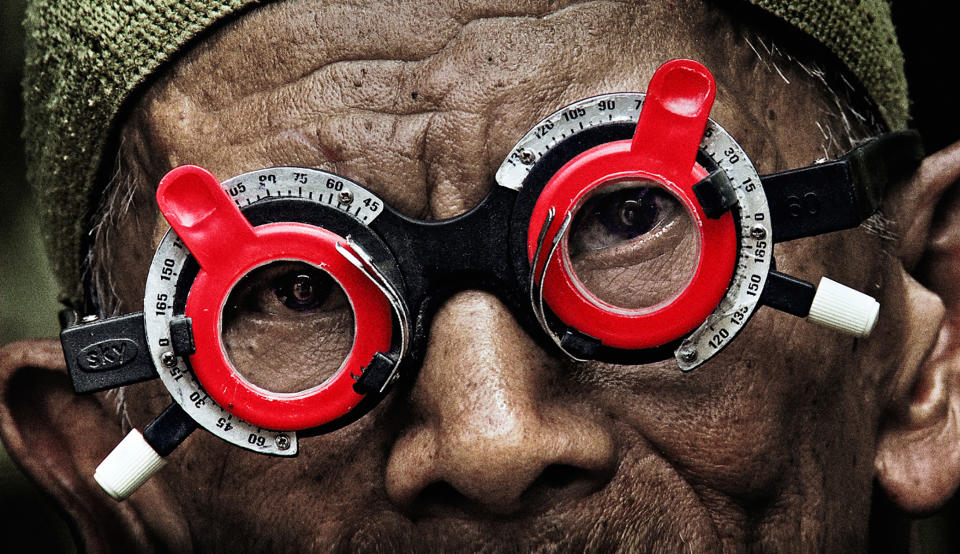Denmark Punching Above Its Weight To Become A Global Powerhouse In The Documentary World

Denmark was a world power in the Middle Ages, conquering parts of the British Isles and Normandy, and holding sway in Norway into the 19th century. Today, the Nordic country bordering the Baltic and North seas is prosperous if smaller, with a population of fewer than 6 million people. But it has become a world power in a new arena — documentary filmmaking. Denmark’s flourishing doc scene has become the envy of the nonfiction community.
“It’s extraordinary, the talent we have, telling stories from a very personal, artistic perspective and still reaching out to audiences around the world,” says Ane Mandrup, head of documentaries at the Danish Film Institute. “I think there’s something special going on.”
More from Deadline
That “something special” is evidenced by recognition on a remarkable scale: Danish produced and/or directed documentaries have earned numerous Oscar nominations in recent years, including The Act of Killing, The Look of Silence, Last Men in Aleppo, The Cave, Flee and A House Made of Splinters.

Flee, directed by Jonas Poher Rasmussen, achieved something that may never be equaled again — scoring Oscar nominations for Best Documentary Feature, Best Animated Feature, and Best International Film. Rasmussen’s documentary centered on an Afghan refugee he met when he was growing up in a small town in Denmark.
“We have filmmakers who are really trying to put their personal touch on everything they do, no matter if it’s their personal story, but also if it’s a political story, then they find their own personal way of telling that story,” notes sound designer Peter Albrechtsen, an Academy member whose credits include The Cave, A House Made of Splinters, The Distant Barking of Dogs, and narrative features Evil Dead Rise, and The Killing of Two Lovers. “That’s something that has been a core kind of quality for Danish documentary.”
Sigrid Dyekær, producer of the Oscar-nominated The Cave and Emmy-winner The Territory, points to something more elemental in the Danish character that accounts for success in both nonfiction and fiction film.
“Storytelling has always been part of our upbringing, something we learned from Hans Christian Andersen, I think, and we learned from Karen Blixen, the Out of Africa writer,” Dyekær observes. “We all grew up with this element of storytelling, which is so extremely important in our culture. Maybe because we’re so small that we think nobody would care about the Danes, nobody would care about what we produce or do, but if we create a story around it, then maybe people would be more interested in what we have to offer. I definitely think we have this creative soul, all of us.”
Denmark has disrupted the nonfiction filmmaking space through a combination of factors, among them cinematic training, financial support, and international collaboration.
The National Film School of Denmark, founded in 1966 (currently run by Tine Fischer, who will take over as CEO of the Danish Film Festival in August) is a rigorous four-year program with an extraordinary roster of graduates: on the narrative side, Bille August, Lars Von Trier, Lone Scherfig, and Thomas Vinterberg, and on the nonfiction side, Eva Mulvad, director of Enemies of Happiness, and an Emmy winner for The Cave; Simon Lereng Wilmont, the Oscar-nominated director of A House Made of Splinters, and Oscar-shortlisted The Distant Barking of Dogs; and Lea Glob, recently Oscar-shortlisted for Apolonia, Apolonia.
Glob says she learned from her professors, “To find a way to be an artist in whatever way you can and to be conscious about methods, personal themes and visual language. And to build a confidence as a director, so you will be able to carry and protect and value the initial interest-idea and core of a film all the way through a filmmaking process and treasure it until it is in the final film.”

Apolonia, Apolonia began as an assignment at the film school. It led to a 13-year odyssey to document artist Apolonia Sokol as she rose from obscurity to prominence. “Mostly,” Glob says of her film school experience, “I learned how to live a life as a director, and continue to create film, despite all thinkable obstacles — internal obstacles and external.”
Albrechtsen attended the Danish Film School from 1997 to 2001, studying alongside “documentary directors and fiction directors, and we just went back and forth and worked with both of them. It was not like, ‘Now we are making a documentary, this is something special,’ or ‘Now we are making a fiction film. This is something special.’ No, it was really this wonderful open-minded approach to just filmmaking. We were making movies, we were telling stories, and I think that has had an enormous impact on all the [Danish] picture editors, cinematographers who’ve been working internationally with documentaries as well, that there’s this basic idea at the Danish Film School that when you’re doing a documentary, you are also making a movie.”
Albrechtsen and Glob cite faculty member Arne Bro as a big influence on students. “He was really focused on finding each person’s personal imprint when making movies,” Albrechtsen says, noting that advice went for directors as well as cinematographers, picture editors, and sound editors. “What kind of personal approach do you have to the way you make movies? And this means we were brought up with the idea that when you make a documentary, it’s both visually and sonic storytelling. It’s cinematic storytelling.”
First year tuition and fees for USC’s graduate program in cinematic arts can run between $44,000 and $58,000. The Danish Film School, by contrast, pays students to attend. “No debts once you were done,” Glob says. “This is a great advantage if you want to be able to take creative risks. So even people of low privilege could afford to dream of becoming directors.”
Support for filmmaking extends beyond schooling to the government-funded Danish Film Institute, which has backed the great majority of acclaimed Danish documentaries, including Flee, Apolonia, Apolonia, President — the award-winning film directed by Camilla Nielsson and produced by Signe Byrge Sørensen — and Oscar-nominated films The Act of Killing and The Look of Silence, directed by Joshua Oppenheimer and produced by Sørensen.
“We look for artistic originality and for artistic vision when it comes to projects that apply to us for funding,” says the institute’s Mandrup. “Most of those documentaries that travel internationally, we’ve supported them.”

An independent film consultant with substantial experience evaluates proposals from filmmakers. “You don’t tick boxes, you don’t have to satisfy a committee, you satisfy one person,” says Mandrup, adding that it can be an iterative process. “We like to see ourselves as the risk-taking part in projects. So, we’ll develop perhaps once, twice, three times what it takes for the individual project to hone the idea, the arena, the characters, and getting closer and closer to the treatment and to the story that’s at stake and the film potential of the project.”
In the U.S., very little government aid goes to support filmmaking or the arts in general. Mandrup and Dyekær — producer of The Cave and The Territory — say that in Denmark, however, people believe in directing tax revenue to such pursuits.
“I think it feels like we are a poorer country if we don’t support arts,” says Dyekær. “It’s very important because artists and art pieces can help us understand the world we’re living in… We know that if we don’t produce documentaries, we will lose a very important window into — especially for the young generation, because honestly, they don’t read books. So how are you going to help young people understand who they are and what world they’re living in and what other options are out there, and what do they need to do for themselves and their families if they don’t see that?”
The filmmaking climate in Denmark has prompted some renowned international directors to take up residence there, where they can collaborate with skilled producers and craftspeople. Oscar-nominated filmmaker Guy Davidi (5 Broken Cameras, Innocence), Oscar winner James Marsh (Man on Wire), and David Borenstein (Dream Empire, Can’t Feel Nothing) are among the directors based either full- or part-time in Denmark. Oppenheimer is closely associated with Final Cut for Real, a Danish production company founded by Signe Byrge Sørensen and Anne Köhncke that has produced The Act of Killing, The Look of Silence, Flee, A House Made of Splinters, President, The Killing of a Journalist and many other acclaimed films.
Dyekær sees collaboration as intrinsic to the Danish way of doing things. “Denmark is a trading country. That’s our culture,” she says. “We’re 500 islands and you go through the Baltic Sea and you go towards the U.K. and everybody’s somehow passing by Denmark… So, we are enormously used to people arriving with something and we have a look at it and we say, ‘Whoa, that’s interesting. Yeah, I can sell it.’ And we can sort of build a story around it.”
Director Yance Ford and producer Joslyn Barnes credit their collaboration with Danish partners for helping them through a creative logjam on their 2017 Oscar-nominated documentary Strong Island.
“We looked for a new editor and I had just been in Denmark and knew of Janus Billeskov Jansen who had done work on Joshua Oppenheimer’s The Act of Killing,” Barnes recalled in an interview. “We moved Yance to Copenhagen and he was there for nine months. The edit was started from scratch, literally. Hundreds and hundreds of hours of footage was looked at again. The questions that Yance started with really evolved and changed over that time and ended up in a new set of questions which I think really benefitted the film… I think it’s really worth working there.”

Denmark not only boasts some of the top documentary filmmakers, but one of the most important documentary film festivals in the world, CPH:DOX, founded in 2003. “The real movement of Danish documentaries into the outer world internationally sort of coincides with CPH:DOX starting,” observes Niklas Engstrøm, the festival’s artistic director (he took over from Tine Fischer, who now runs the Danish Film School). The festival’s efforts to support international cross-pollination has meant “Danish filmmakers and producers could start co-producing more and also get inspired by people from the rest of the world.”
Says Albrechtsen, the sound designer, “That festival is done in such a great way with such enthusiastic, passionate people who really have great taste in selections. And they also look at the documentary world as something that connects us all. And I think that the same goes for Danish documentary filmmakers, that we are all very ambitious in that way, and we don’t look at something as, ‘We need to tell a Danish story.’ No, we have to tell a great story. And I think that has also been very inspirational for the creative climate in the documentary world.”
Best of Deadline
Hollywood & Media Deaths In 2024: Photo Gallery & Obituaries
2024 Premiere Dates For New & Returning Series On Broadcast, Cable & Streaming
2024-25 Awards Season Calendar - Dates For Oscars, Tonys, Guilds, BAFTAs, Spirits & More
Sign up for Deadline's Newsletter. For the latest news, follow us on Facebook, Twitter, and Instagram.

